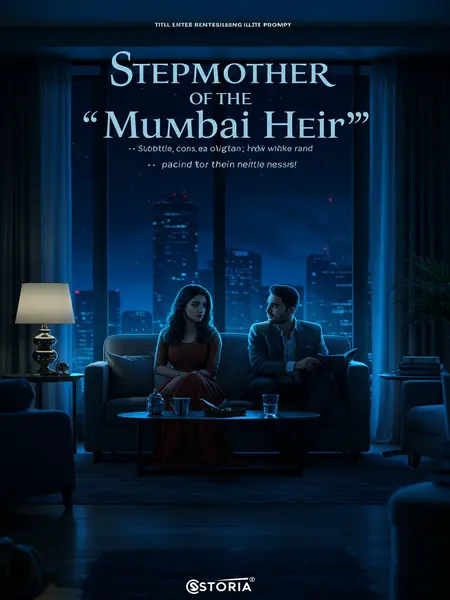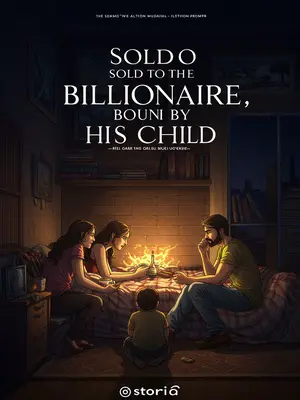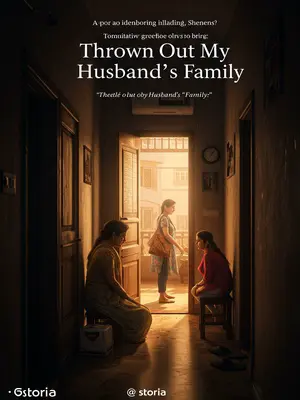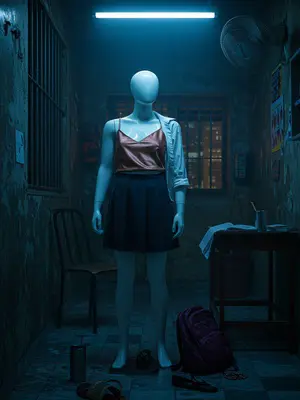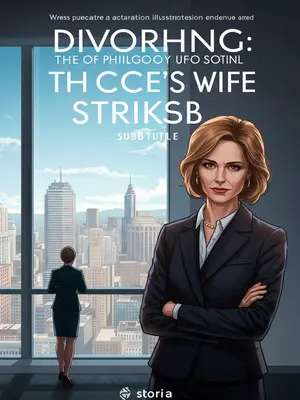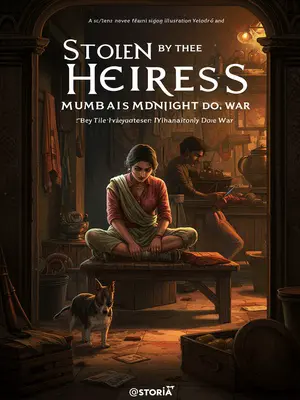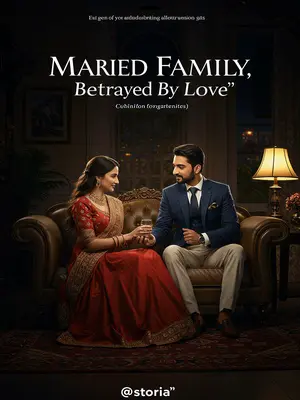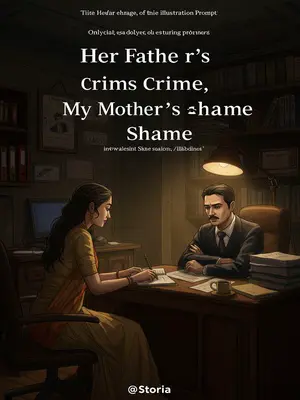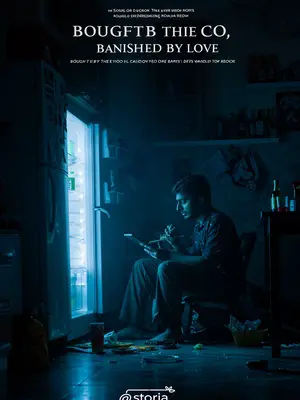Chapter 3: Rebellion and Escape
For a while, I said nothing. Kabir’s mother, Priya, was a romantic who married Arjun and wanted love, not just money. One chased, one ran. Priya died young and lonely. After, Arjun married me—a gold digger who looked just like her.
For a child to watch his mother die alone, unable to find his father, must be a special kind of heartbreak. No wonder Kabir later sent Arjun to a mental hospital.
We stayed locked in the little dark room for hours. When Uncle Ramesh finally opened the door, the sudden sunlight hurt my eyes. I reached out, shielding Kabir’s face. For a moment, my hand lingered on his head, like a mother bird over her chick.
Uncle Ramesh’s look was cold, mocking. “Madam is kind, but take care of yourself first. I’ve reported this to sir. Next time you interfere, I’ll lock you in too.”
He answers the butler’s calls, but not mine. The original host must have truly been just for show.
I glared at him, carried the sleeping Kabir out, but Uncle Ramesh yanked him from my arms, setting him on the floor. Kabir, groggy, glared up. Uncle Ramesh said, “Young master, you’re seven now. You need to learn to be independent. No more being held, especially by women.”
A wave of anger swept through me—the kind that makes your ears hot and hands cold. Who taught him that a woman’s touch was weakness? Even in Mumbai’s poshest bungalows, old ideas die hard.
I grabbed a flower vase and smashed it at Uncle Ramesh. My aim was true—his head split, blood trickling down.
He stared, stunned that I’d dare. I sneered, “Go complain to Arjun, call the police—see if he keeps you or me. Or hit me—unless you kill me, I’ll expose you and shame the family. Try me.”
The title of Mrs. Arora is mine now. Divorce is hard. There can only be one master in this house. If I compromise, I’ll end up like the last wife—colluding, then discarded.
Uncle Ramesh’s face darkened, but I picked up Kabir and walked to the door. He blocked me. “Madam, where are you taking young master?”
I stared him down, silent. Power is in the gaze. If I answer, he can argue. If I don’t, he panics. Sure enough, he gritted his teeth: “I don’t mean anything else.”
“Whatever you think, behave yourself. If I could get Arjun to marry me, I can get him to fire you. Don’t believe it? Try me. I dropped my phone in the room, go get it.”
He hesitated. I sneered, “Won’t listen? Old employee?”
He turned. I shoved him into the dark room and locked the door. Furious banging erupted, but the door was soundproof.
Kabir’s eyes were wide, sparkling. “Is... is this okay?”
“Are you happy?”
He hesitated. “Happy... but it’s not right. Mum said we shouldn’t treat people like this.”
“But he bullied us. Locked us up, looked down on women. Is that right?”
“No.”
“Exactly. When kids do wrong, adults punish. He did wrong, so we punish him. Fair, right?”
“Right.” Kabir looked calmer. Maybe, deep down, he’d wanted this for a long time but never had support.
I told everyone: three days off. They left, except Aunty Radha, who eyed me. “Where’s Ramesh Bhaiya?”
I stared at her. “You need him for something?”
She fumbled. “He usually notifies us.”
“So you listen to him, not me? Does he pay your salary? I just told him, now I’m telling you: if I could get Arjun to marry me, I can get him to fire you. Think who owns this house.”
She left, face sour. Kabir looked worried. “Meera-didi, Dad trusts them. They’ll tell on you. Dad will make trouble.”
“Let him try to find us.”
I packed clothes, dragged a suitcase, set Kabir on it, and wheeled him out. He clung to the handle, sitting stiffly, trying not to fall.
“Did your mum ever take you travelling?”
“No. Mum always waited at home for Dad.”
Romantics do that—waiting for calls that never come, hoping for love that never returns. In the end, only the child is left, starved of affection, twisted by loneliness.
“Didi will take you travelling. Hold tight!”
I flagged down a rickshaw, haggled with the driver, and squeezed us in, Kabir perched on the suitcase, eyes wide as we zipped past Marine Drive. His laughter rang out, echoing in the corridor of my heart, like the first rain after a drought.
We checked into an OYO with a borrowed ID, hiding from Arjun. Let him panic a little.
For three days, I took Kabir everywhere: Chowpatty for bhel puri—the tang of raw mango and chilli making his eyes water, but he grinned; the aquarium, where he squealed at the turtles; the carousel, hills, water fights, every joy he’d been denied. His eyes, once clouded, now shone with the mischief of a free child.
Arjun’s assistant called. I took his name, told him to free Uncle Ramesh, then blocked him. Finally, Arjun called himself. I let him taste a few busy tones before picking up, my anger cooled.
Kabir asked, “Meera-didi, aren’t you afraid of Dad?”
“No. Is he that scary?”
He hesitated. “Mum was scared. When Dad came home, he never smiled.”
That’s emotional neglect. Kabir disliked his father as a child, then became like him. Cold, stubborn, regretful—then broken.
I ruffled his hair. “So you must smile at me. At home, you’re all I have. If you ignore me, my heart will break.”
He solemnly promised. I held out my pinky. “Let’s pinky swear.”
He looked confused, but hooked his finger. I recited, “Pinky swear, hang for a hundred years, never change.” My heart ached—he didn’t even know this. Already in first grade—how does he survive at school?
Just then, a cold voice cut in: “Meera, what are you doing?”
I looked up. Arjun had returned. The man who said three months—back in four days. That was quick.
